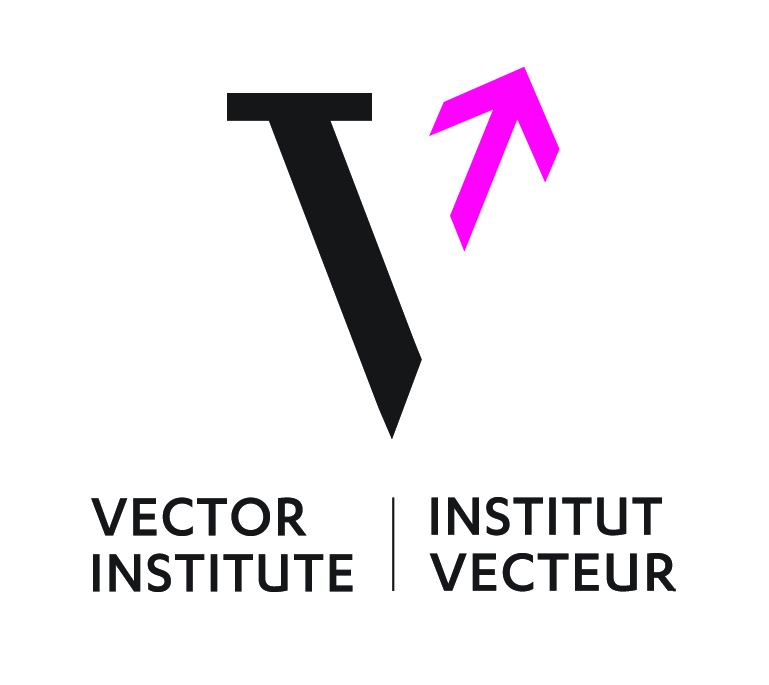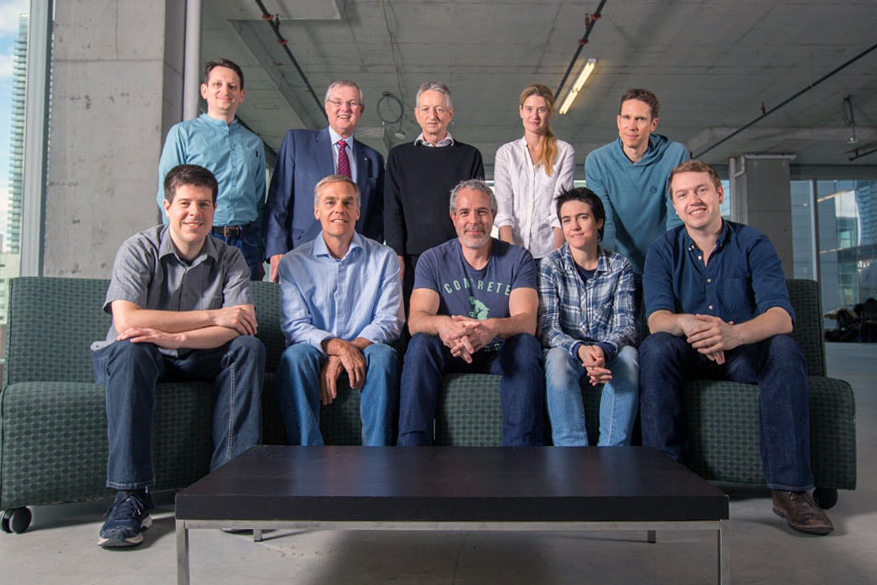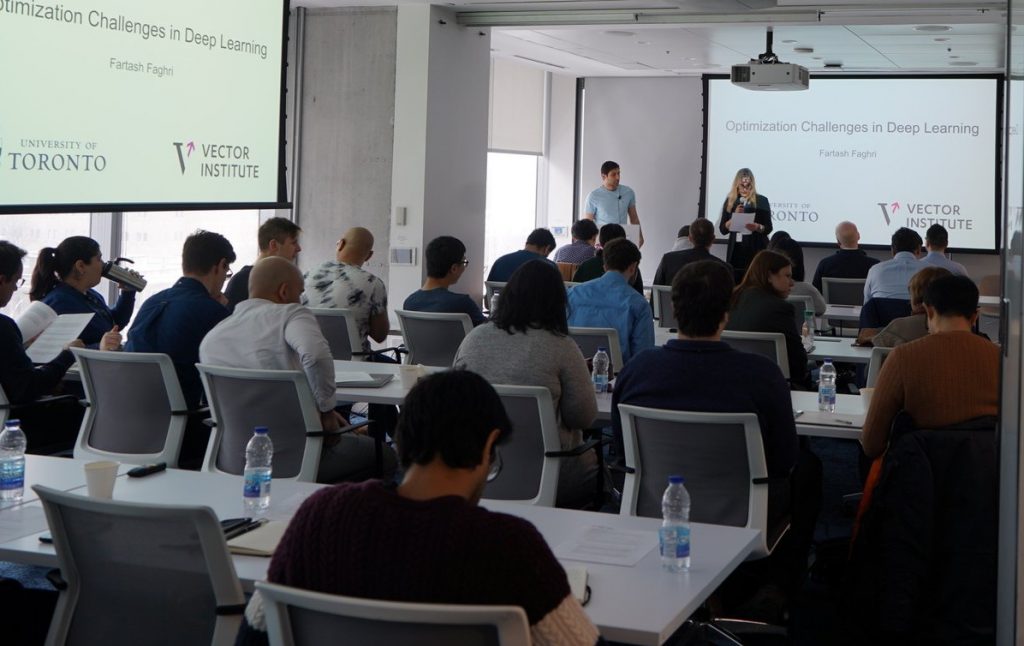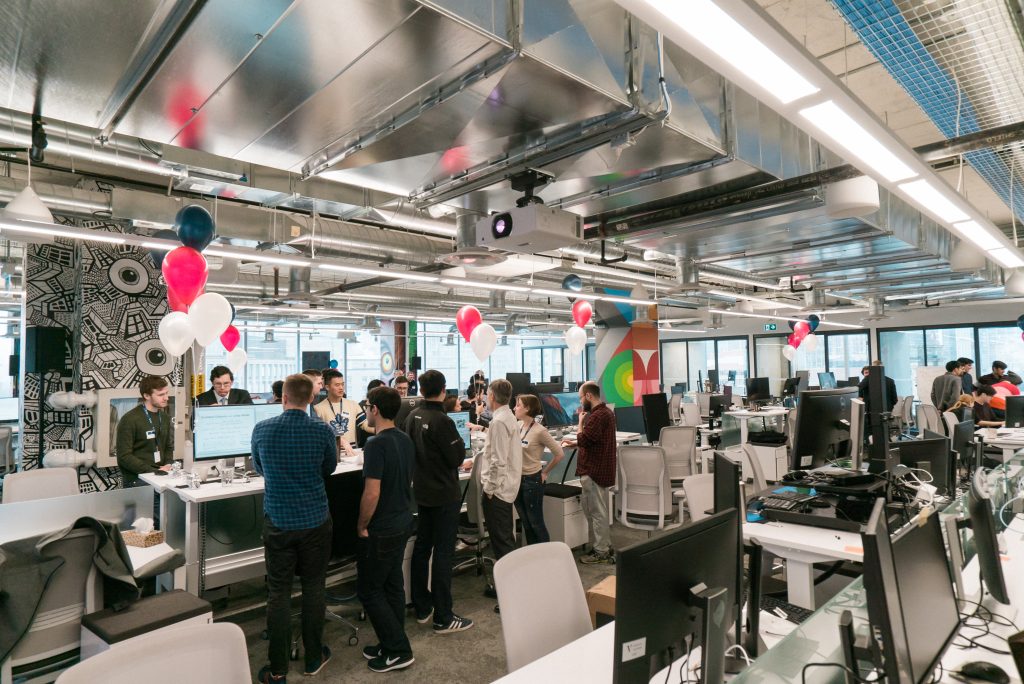
The Vector Institute for Artificial Intelligence was launched in 2017 in collaboration with the University of Toronto (UofT) with the vision to drive excellence and leadership in Canada’s knowledge creation, and the use of artificial intelligence (AI) in machine learning (ML) and deep learning (DL) to foster economic growth and improve the lives of Canadians. This research centre is supported by the Federal government, the Province of Ontario, and over 30 major Canadian and international companies.
The key pillars of its mission are for Vector to:
- Lead Ontario’s efforts to build and sustain AI-based innovation, growth and productivity in Canada.
- Together with its AI partners, it will work with Canadian industry to ensure that they have the people. skills, and resources to be best in class.
- Will support AI innovation clusters and focus on helping start-ups grow.
- Vector will attract the best global talent focused on research excellence working across disciplines on both curiosity-driven and applied research.
Dr. Darin Graham has a rich background in both AI and industry-academic collaboration, and was brought onboard to Vector as the inaugural Vice President of Industry Innovation. As a member of the founding operational team, Darin was the primary interaction with all the industry partners as well as engaging Vector researchers on collaboration initiatives. His key activities included: finalising over $90M in industry sponsorships for the first ten years of the institute’s operations; leading industry engagement including the development of sponsor collaboration, workshops, and conferences as part of an integrated roadmap to enhance the AI ecosystem in Toronto and Canada; and, formulating and implementing AI strategies to help create new market opportunities for companies ranging from start-ups to global AI leaders.
Advantages
Talent Attraction – One of the significant issues faced by Canada was that although they produced some of the best Master’s and PhD’s in AI from UofT, this talent was being highly sought after by universities and industry around the world. An aim for Vector was to provide funds and a research culture to retain this talent in Canada. Vector attracted worldwide interest from the day it was announced. It was certainly a win for UofT and the Toronto AI ecosystem as there was now additional funds to leverage and attract world-leading researchers that might have gone elsewhere (MIT, Stanford, Oxford). Within a year of moving into its new facilities, Vector had over 150 researchers – professors and Master’s/PhD/PostDoc students.
Toronto AI Ecosystem – As a result of a critical investment made by the University of Toronto over 30 years ago to hire Dr. Geoffrey Hinton (a “godfather” of modern AI and a recent recipient of the Alan Turing Award), it has become a global centre of ML/DL. That combined with the depth and breadth of a highly functioning ecosystem (number of tech workers 2nd only to Silicon Valley; high concentration of AI start-ups and venture investment; being Canada’s financial capital; and, world-leading health research) has made Toronto a place that many large global tech companies are looking to build AI labs. Not only is it strong locally, but its reach is worldwide as the UofT AI graduates over the last 30 years have gone on to lead many of the largest AI research labs in the world – in both industry and academia.
Industry Engagement – Vector’s industry sponsors reflect the broad potential of AI and represent sectors as diverse as health care, finance, insurance, education, retail, advanced manufacturing, construction and transportation. It is remarkable that over 35 large, medium, and small companies collaboratively supported Vector, even before its launch. These companies pledged over $90M to support the institute over its first ten years of operations. This money enabled Vector to secure an additional $90M in matching funds from the Ontario and Canadian governments. During the first year, Vector implemented a variety of workshops to educate the industry sponsors on leading-edge AI, started a project on collaborative research for the financial sector, and established sponsor advisory group meetings and idea exchange opportunities.
Challenges
Industry Expectations – The outstanding academic research talent being hired expected a pure research environment…Industry sponsors and the government expected a more applied direction. Vector decided it would start with being a world-class fundamental research centre and grow into doing the other. How effectively Vector can include active joint research projects with industry as a core component of its activities will be a crucial challenge of its sustainability over the long term.
Broader Ecosystem Engagement – Many other Ontario universities feel that Vector is too UofT centric and has an air of elitism. Even with a few joint appointments at other universities, it remains a sticking point for many.
Summary
There is no doubt that Vector has put itself on the world map of AI research in the early years of operations. It has attracted some fantastic researchers – now totalling over 350 professors and students (at the end of Year 4). And has produced leading-edge AI papers and concepts – continuing the strong tradition of the 30 years of the UofT ML/DL group.
The issue will be its sustainability. It still has yet to manage the inconsistency in the stakeholders’ expectations – researchers, industry, and government. Vector has made a good start on its mission elements. As it positions itself for the future, it will need to expand and leverage its strengths to tackle its challenges. Yet, it has achieved its objective of being one of the leading AI research centres in the world.









 Oil and Water
Oil and Water